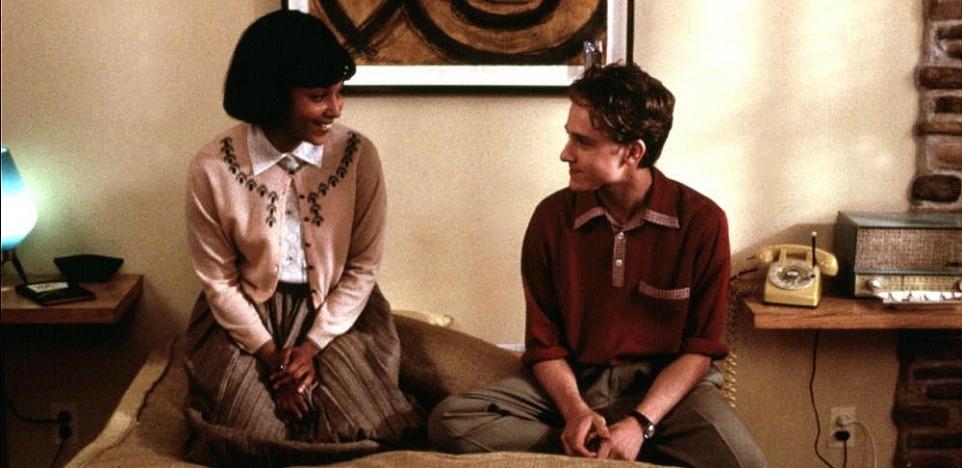Writer and director Barry Levinson hits high stride with this brilliantly acted, humorous, and relaxed film. It is the fourth in a series of dramas (Diner, Tin Men, Avalon) about his hometown — Baltimore, Maryland. Liberty Heights is set in 1954, a time when barriers of race, class, and religion separated people from one another. And, as a series of subtle scenes illustrate, this era was also convulsed by fear of communism, rock 'n roll, and the bomb. All those who demonstrated an open heart or an open mind in the divisive 1950s were spiritual pioneers.
High schooler Ben Kurtzman (Ben Foster) learns from his mother (Bebe Neuwirth) that if folks are not Jewish, they're "the other kind." His father, Nate (Joe Mantegna), it turns out, has quite a few dealings with the others; he runs a burlesque club and operates a numbers racket on the side. During one year, Ben and his older brother Van (Adrien Brody) test the boundaries of their world in the Jewish community of Liberty Heights.
Van, a college student, falls in love with Dubbie (Carolyn Murphy), a rich blonde from the other side of town who runs with the country club set. Meanwhile, Ben secretly befriends Sylvia (Rebekah Johnson), the only black girl in his home room. The two teens are separated by race and class. Her authoritarian father (James Pickens, Jr.), a wealthy doctor, definitely disapproves when he finds them alone in her room listening to music. After driving the boy home, he is surprised when Ben refuses to leave the car until a song playing on the radio is completed. "You don't walk out on Frank Sinatra," Ben explains. "It would be too disrespectful."
In this smoothly orchestrated drama, Barry Levinson shows how the spiritual practice of openness expands the horizons of the two Kurtzman boys. They learn painful and important lessons about anti-Semitism and class power games. Their father Nate also finds himself adrift in unfamiliar waters when his illegal operations put him at the mercy of Little Melvin (Orlando Jones), a small-time black drug dealer. Coming to terms with "the other" (whether stranger, enemy, or alien) is as critical to the development of soul now as it was in the 1950s.
